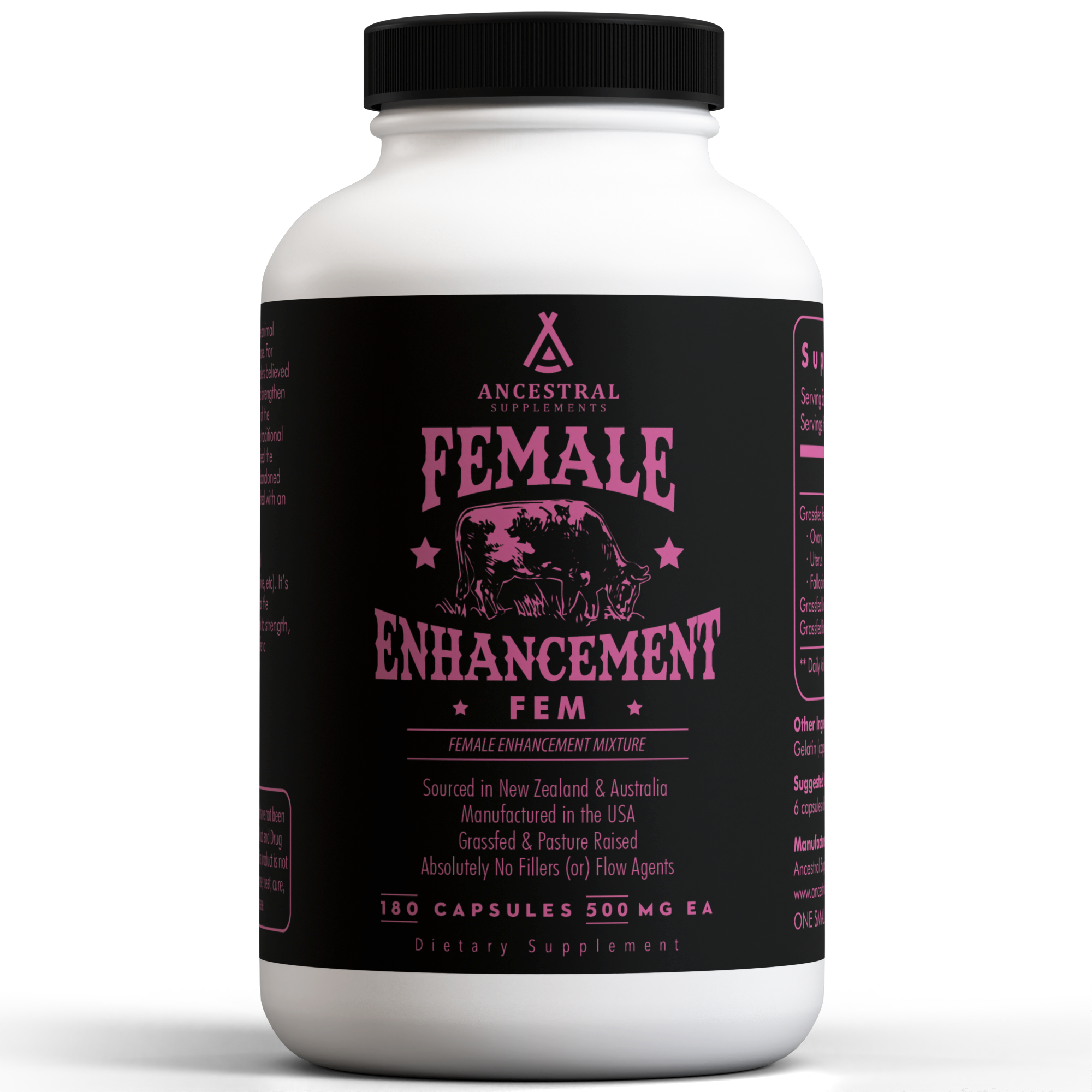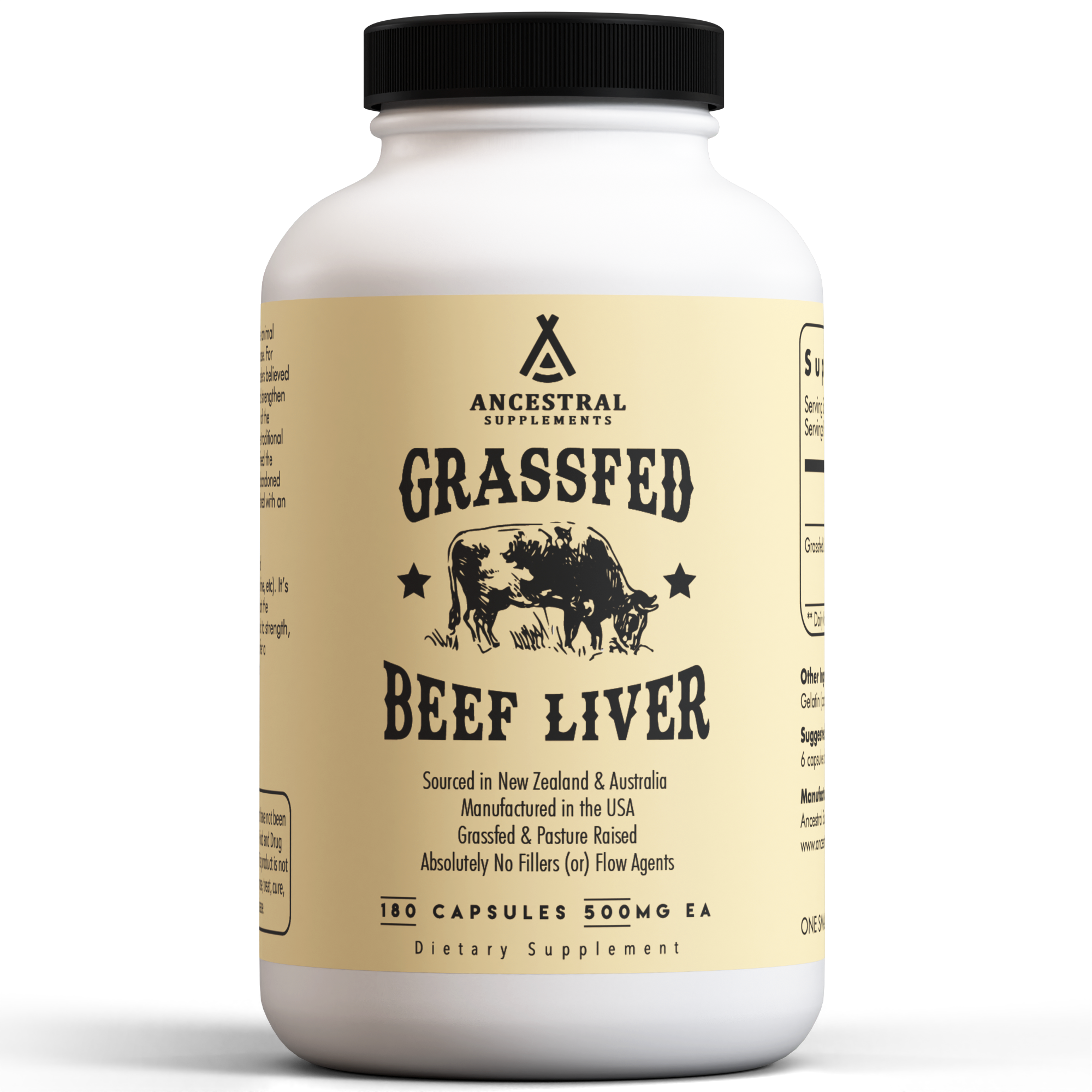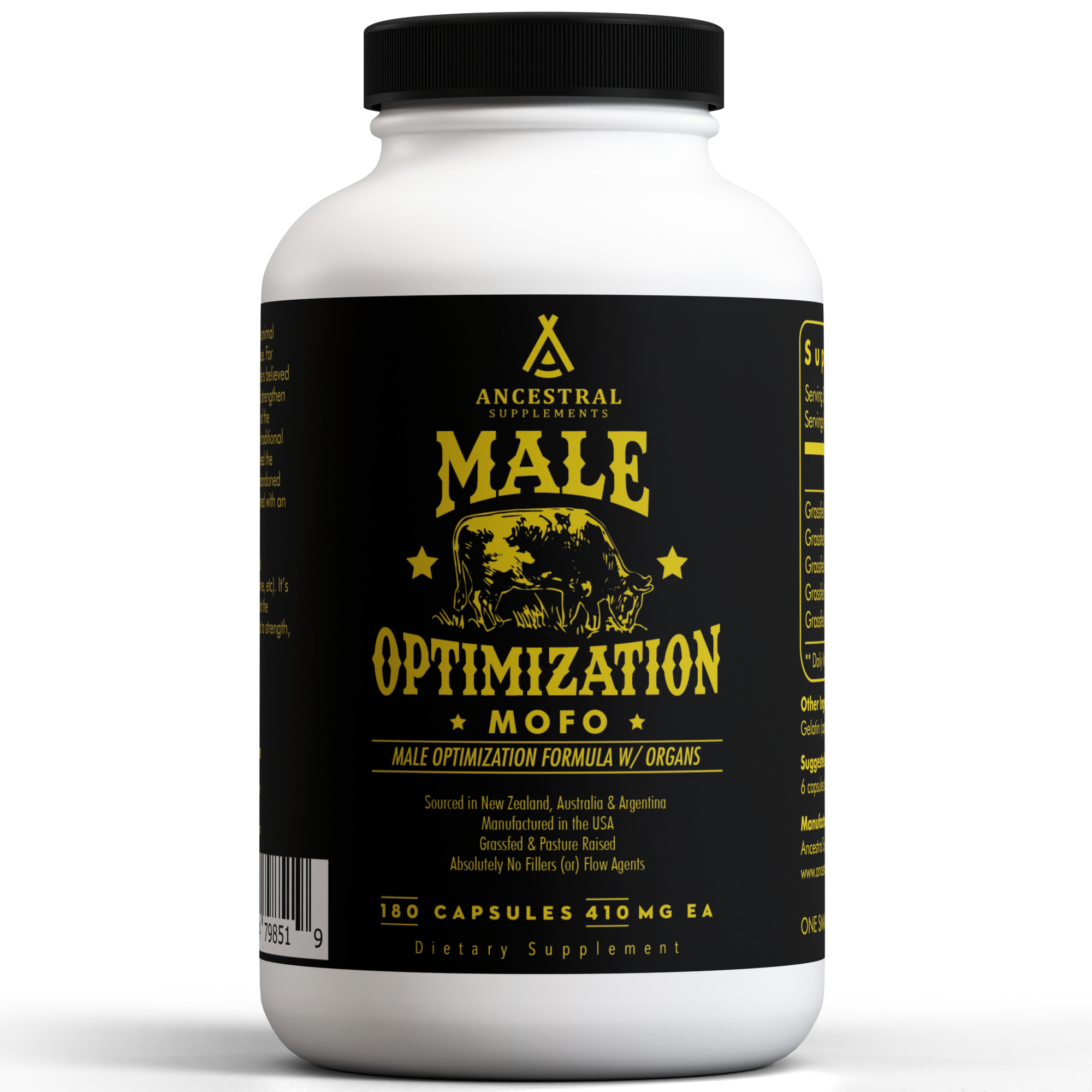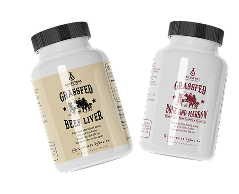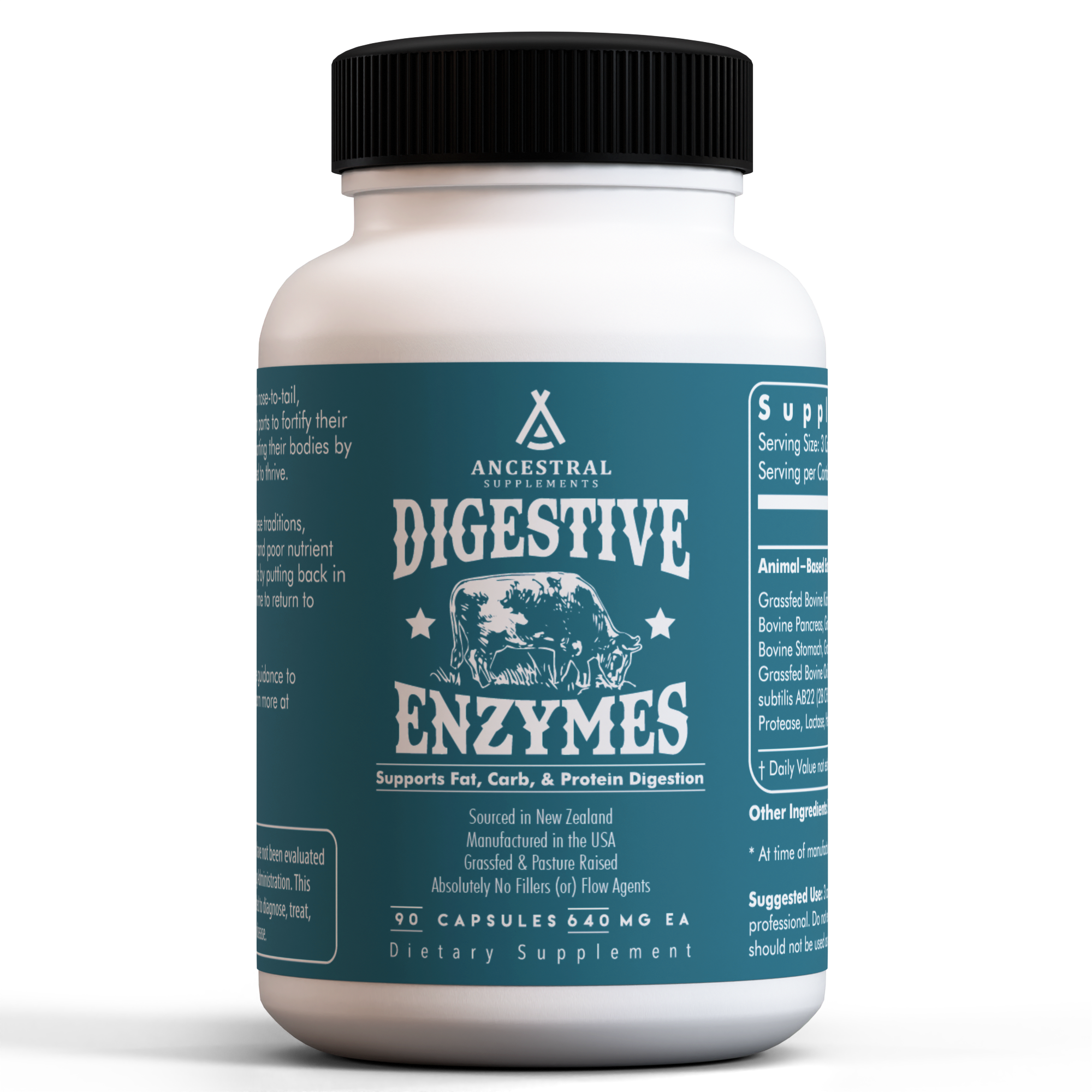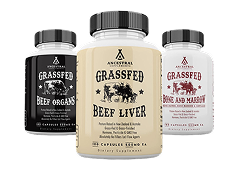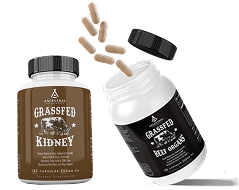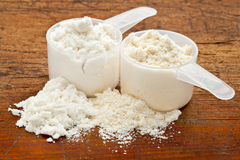Colostrum vs. Collagen: Understanding the Differences and Benefits

Among the vast array of available supplement options, two standouts—colostrum and collagen—are worth our attention.
Each has powerful and distinct advantages that can help to support many aspects of your health, whether you’re seeking to bolster your immune system and gut health, enhance skin elasticity, or strengthen joints and muscles.
Below, we'll explore the many benefits of colostrum and collagen, how they're sourced, who they're best suited for, and how they can be valuable additions to your supplement routine, whether you decide to take one or both.
What Is Colostrum?
Colostrum, often referred to as "first milk," is the initial form of breast milk produced by mammals (including humans and cows) immediately following birth.
This nutrient-rich fluid is crucial not only for newborns—as it provides essential nutrients that support growth and development—but is also recognized for its uses among adults, which is why many health-focused people choose to supplement with bovine colostrum.
Composition of Colostrum
Colostrum is densely packed with immune-boosting compounds such as antibodies, growth factors, and anti-inflammatory agents, as well as vitamins and minerals. These beneficial nutrients are missing in many modern-day diets, yet they provide a ton of support for general health.
You'll also find high levels of proteins called immunoglobulins within colostrum, which help support immune system function.
Key Benefits of Colostrum for Health
- Anti-inflammatory Properties
Colostrum contains several components that can help fight inflammation, including:
- Proline-rich polypeptides (PRPs): These small immune signaling molecules can modulate the immune system, helping to counteract inflammatory responses that lead to swelling and pain.
- Lactoferrin: This multifunctional protein has anti-inflammatory, antibacterial, and antiviral properties that may help inhibit the production of pro-inflammatory cytokines.
- Immunoglobulins: These antibodies can bind to and help neutralize bacteria, viruses, and other pathogens, thereby reducing the immune system's need to mount a strong inflammatory response.
- Immune System Support
Colostrum's rich antibody content can help strengthen the immune response, helping provide protection against various pathogens. Within colostrum, you'll find immunoglobulins and lactoferrin, which contribute to immune system support, potentially reducing the likelihood of getting sick.
- Rich in Essential Nutrients
Colostrum is rich in various essential vitamins and minerals that support overall vitality, immunity, and endurance, including vitamins A, B, C, and E. These nutrients are important for maintaining the protective barrier of the skin, supporting metabolic functions, bolstering the immune system, and more
- Digestive and Gut Health
Research shows that colostrum can be helpful for preventing and managing gastrointestinal issues like leaky gut and inflammatory bowel disease, thanks to its ability to repair intestinal lining and reduce inflammation.
- Athletic Performance
Bovine colostrum shows promise in several areas related to sports and health and has been a topic of interest in sports nutrition for the past 25 years. Researchers have looked into how it affects body composition, athletic performance, recovery, gut health, immune function, and the risk of getting sick.
Some studies suggest that bovine colostrum can help athletes maintain their performance levels during intense training periods. Colostrum may also help to enhance stamina and recovery in athletes, supporting overall performance and recovery.
Colostrum's growth factors, such as IGF-1 and IGF-2, may also help increase muscle mass and strength by promoting muscle protein synthesis and reducing muscle breakdown during and after exercise.
- Supports Healthy Iron Levels
Colostrum contains lactoferrin, a glycoprotein that is naturally rich in iron and has the unique ability to bind and transport iron in the body.
This function not only improves iron absorption but also aids in the regulation of its distribution and storage, which can be particularly beneficial for those who need to boost their iron levels, such as athletes or those suffering from anemia.
Lactoferrin's role in managing iron also helps to inhibit the growth of iron-dependent bacteria in the gastrointestinal tract, thus supporting overall gut health.
- Skin Health
Colostrum can benefit skin health in several ways, such as due to its:
- Growth factors that promote the regeneration of skin cells, potentially leading to less visible signs of aging, such as wrinkles and fine lines.
- Antibodies and lactoferrin, which provide anti-inflammatory benefits that can help manage skin conditions such as acne, eczema, and psoriasis (characterized by skin swelling, redness, and itchiness).
What Is Collagen?
Collagen is the most abundant protein in the body and is a major component of connective tissues, bones, skin, muscles, tendons, and ligaments. You can think of collagen as the glue that holds these structures together.
Collagen is derived primarily from four amino acids: glycine, proline, hydroxyproline, and arginine. These amino acids form triple helix structures that provide strength and elasticity, ensuring that tissues can stretch and absorb impact without damaging the underlying structures.
Role of Collagen in the Body
Collagen acts as a "building block" for the body, ensuring the health and resilience of tissues and organs throughout. It helps to maintain the structural integrity of various tissues in our bodies, including very important ones such as the gut lining (where nutrient absorption and many immune defenses take place) and the skin.
There are several main types of collagen found throughout the body, each serving distinct functions:
- Type I: The most prevalent type that's densely packed into the bones, skin, tendons
- Type II: Less dense and more flexible, found in elastic cartilage, which cushions the joints
- Type III: Supports the structure of muscles, organs, and arteries
- Type IV: Helps with filtration and is found in layers of your skin
Benefits of Collagen Supplementation
- Skin Health and Elasticity
As we age, our bodies' natural production of collagen decreases, which can lead to common signs of aging, such as wrinkles and sagging skin.
Supplementing with collagen can support the skin's repair process, thus providing anti-aging effects and enhancing skin appearance and texture. Research suggests collagen is helpful for maintaining skin elasticity and hydration, which helps reduce wrinkles and dryness.
- Strengthens Hair and Nails
Collagen provides amino acids necessary for building hair proteins and strengthening the skin around hair follicles, which helps prevent hair thinning and breakage. In addition to supporting hair growth, collagen can improve nail strength, reducing brittleness.
- Supports Joint Health
As a major component of cartilage, collagen helps to maintain joint integrity, comfort, and flexibility. It's useful for fighting joint pain and degeneration, particularly for those struggling with conditions like osteoarthritis, by helping to rebuild cartilage and restore joint mobility.
- Promotes Bone Health
Collagen contributes to bone density and strength by forming part of the organic matrix in bones. Supplementing with collagen may help reduce the rate of bone density loss that accompanies aging, making it particularly useful for post-menopausal women who are at greater risk of osteoporosis.
- Aids in Digestive Health
Collagen is beneficial for the entire gastrointestinal system, especially because it can help repair the intestinal lining, promote better gut health, and aid in the prevention of conditions like leaky gut syndrome.
Additionally, collagen may help improve general digestion and decrease symptoms such as bloating. Because the majority of the immune system is located within the gut, it can also support immune defenses.
- Supports Cardiovascular Function
The amino acids in collagen, such as proline and glycine, can help to maintain arterial flexibility and integrity. They support the rebuilding of tissues within the heart and blood vessels, thereby contributing to overall cardiovascular function.
Differences Between Colostrum and Collagen
While both colostrum and collagen supplements are derived from natural sources, they differ significantly in their composition and health benefits.
Source and Composition
Colostrum is a dairy product extracted before breast milk production begins. It's produced immediately after mammals give birth and is known as the "first milk."
Bovine colostrum is the most common type of colostrum used in supplements. It comes from cows and is harvested shortly after they give birth. It's chosen for its availability and the ease with which it can be collected in large quantities compared to colostrum from other mammals.
Because the composition of bovine colostrum is similar to human colostrum, it's useful in promoting immunity, gut health, and other physiological functions in humans.
Collagen, on the other hand, is derived from animal connective tissues—typically from bovine/beef, chicken, marine sources, or egg shells, depending on the exact kind. Collagen can be sourced from animal connective tissues at any time, unlike colostrum. Depending on which animal collagen is sourced from, it will contain different percentages of collagen types, such as type I, II, or III.
Bioavailability and Absorption
Colostrum is quickly absorbed into the bloodstream, providing almost immediate benefits to the immune system and gut.
Collagen, on the other hand, may require more time for digestion and assimilation but offers prolonged benefits to skin, hair, and joints.
Hydrolyzed collagen peptides, which is a type of collagen that is already broken down into smaller units, are typically easier and faster to digest. This means collagen peptides can be absorbed by the body more quickly, allowing its amino acids to start benefiting the body sooner, which is especially useful for people with compromised digestive systems (such as those with inflammatory bowel disease).
Specific Health Benefits
Colostrum's benefits are primarily immune and digestive health-focused, whereas collagen's main benefits include supporting structural tissues like the joint and gut as well as skin health.
That said, there's a good deal of overlap in regard to their benefits. Both colostrum and collagen can help support skin health, athletic performance and recovery, mobility, comfort, and general wellness. They can also aid in gut health, thereby providing immune system support.
Can You Take Both Colostrum and Collagen?
Integrating both colostrum and collagen into your dietary regimen is both generally safe and recommended—since the two together can provide complementary benefits.
Using both supplements together enhances overall wellness, as colostrum can help boost the immune system and improve gut health, while collagen contributes to resilient and healthy skin, hair, joints, as well as gut lining integrity.
Safety and Potential Interactions
There are no known adverse interactions between colostrum and collagen, making them safe for most adults to consume together.
When considering the addition of colostrum or collagen supplements to your health regimen, it's important to be aware of potential safety concerns and interactions:
Bovine Colostrum:
- Dairy sensitivity: Although bovine colostrum contains lower levels of lactose than regular cow's milk, those with lactose intolerance should proceed with caution. Individuals with a known allergy to dairy should avoid bovine colostrum altogether due to allergic reactions.
Collagen:
- Allergies and sensitivities: Collagen is typically derived from bovine (cow), marine (fish), chicken, or porcine (pig) sources. If you have allergies to any of these sources, choose a collagen supplement that aligns with your dietary restrictions to avoid allergic reactions.
General Advice for Both Supplements:
- Dosage: Follow the recommended dosages provided on the product labels and adhere to these guidelines to avoid any adverse effects.
- Consult with your healthcare provider: It’s always a good idea to discuss new supplements with your healthcare provider, particularly if you have underlying health conditions or are pregnant or breastfeeding.
Form and Delivery Method Considerations
Both supplements are available in various forms, including powders, capsules, and liquids.
Choose the form that best fits your lifestyle and dietary preferences—for example, capsules if you prefer convenience or powders if you prefer to add supplements to coffee, a shake, or a smoothie.
Sourcing Factors to Consider
Pay attention to where and how the colostrum or collagen is sourced. To ensure you're taking the best quality colostrum and collagen supplements, opt for products made by reputable sources that guarantee high purity and minimal processing to maintain nutrient integrity.
Specific Health Goals and Needs
When deciding whether to take colostrum vs. collagen or both, consider the key benefits you're interested in, such as support for digestion, immune defenses, or skin elasticity.
Consider choosing colostrum if you're primarily looking to enhance immune function and gut health, or opt for collagen if your focus is on improving the appearance and resiliency of your skin, hair, and joints.
Whether you want to start incorporating colostrum and collagen into your diet through capsules or powders, we’ve got you covered.
We’ve sourced the highest-quality bovine colostrum from grass-fed, grass-finished cows raised on ethical, regenerative farms to bring you the benefits of nature’s first food in two forms: Grass Fed Beef Colostrum Capsules or Grass Fed Beef Colostrum Stick Packs.
We also offer Grass Fed Beef Living Collagen in convenient capsule form, featuring a rich blend of bioactive growth factors and vital amino acids sourced from grass-finished, pasture-raised cattle.
Conclusion: Colostrum vs. Collagen: What's the Difference?
Both colostrum and collagen offer substantial health benefits, though they serve somewhat different purposes. Colostrum is mainly taken to help support gut and immune health, healthy iron levels, skin health, and athletic performance, while collagen has been studied extensively for its ability to support healthy skin, hair, nails, and joints.
Many people can benefit from a combination of collagen and colostrum taken together, or at separate times of day if you prefer, due to their complimentary benefits.

